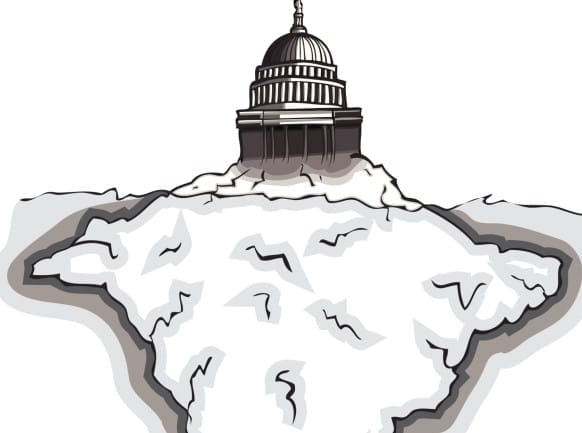The size of government is a red herring issue. The global economy operates as a very complex system of interdependent organizations, all of which have to work together in elegant harmony. So as the economy goes, government is a requisite partner.
That may be hard for many to accept, but for those of us who were shaped by the leading systems scholars, it all boils down to the concept developed by C. West Churchman, C’35, GR’38, an adjunct to the Operations Research and Social Systems Sciences Programs at Wharton from 1973 to 1986, and Russell Ackoff, AR’41, GR’47, the former Anheuser-Busch Professor Emeritus of Management Science, that a modern economy is based on complex systems of many corporate, government and nonprofit entities—all of which are interdependent and must be functioning perfectly.
The metric for all managers in today’s complex world—regardless of their sector—has become “concinnity”: a skillful, harmonious arrangement of all parts in an economic system.
But that presents a major hurdle. Systems are virtual and more complex than one realizes. Whether we are dealing with salmonella in peanut butter, contaminated prescription drugs, cyberhackers, TSA agents who screen all passengers in search of one potential terrorist, or a once-in-a-century weather calamity, a required specification for all complex systems is to be able to prevent or deal with an extremely small statistical possibility of disaster or failure. The result is a necessary, added human and economic burden to societal systems.
We are all now used to having the added burden of opening the specially designed seals on containers for every food or drug item we ingest to ensure total protection. The burden is necessary to regularly check water, other liquids, drugs and food items just on the chance that one of the thousands of food or drug items we ingest daily became contaminated.
Zero tolerance is an absolute spec for a sector-interdependent complex system, even though it carries an overhead cost for the total economic system. Whether it is the price of a product or service or the taxes we pay, it is a no-choice burden we assume collectively when we choose to shape, and live in, an intricately complex technological society.
So the next time you get a cola from a vending machine or buy a jar of peanut butter from a supermarket, better test it before you drink or eat it. The food and drug inspector was furloughed because our sequestered government is considered too big by some. Don’t schedule your next air travel with close connections unless you want to risk a possible near miss on your next flight’s takeoff. You may be delayed because the number of air controllers had to be reduced because of budget cuts.
Our economy’s benchmark of concinnity is no match for the outcome metrics of special-interest pressure groups that shape our political systems today.

























